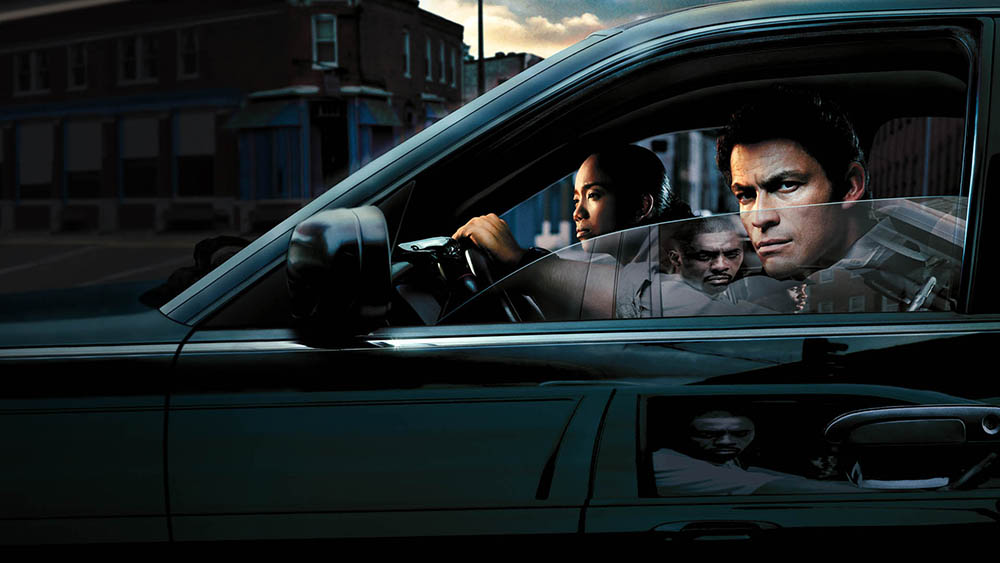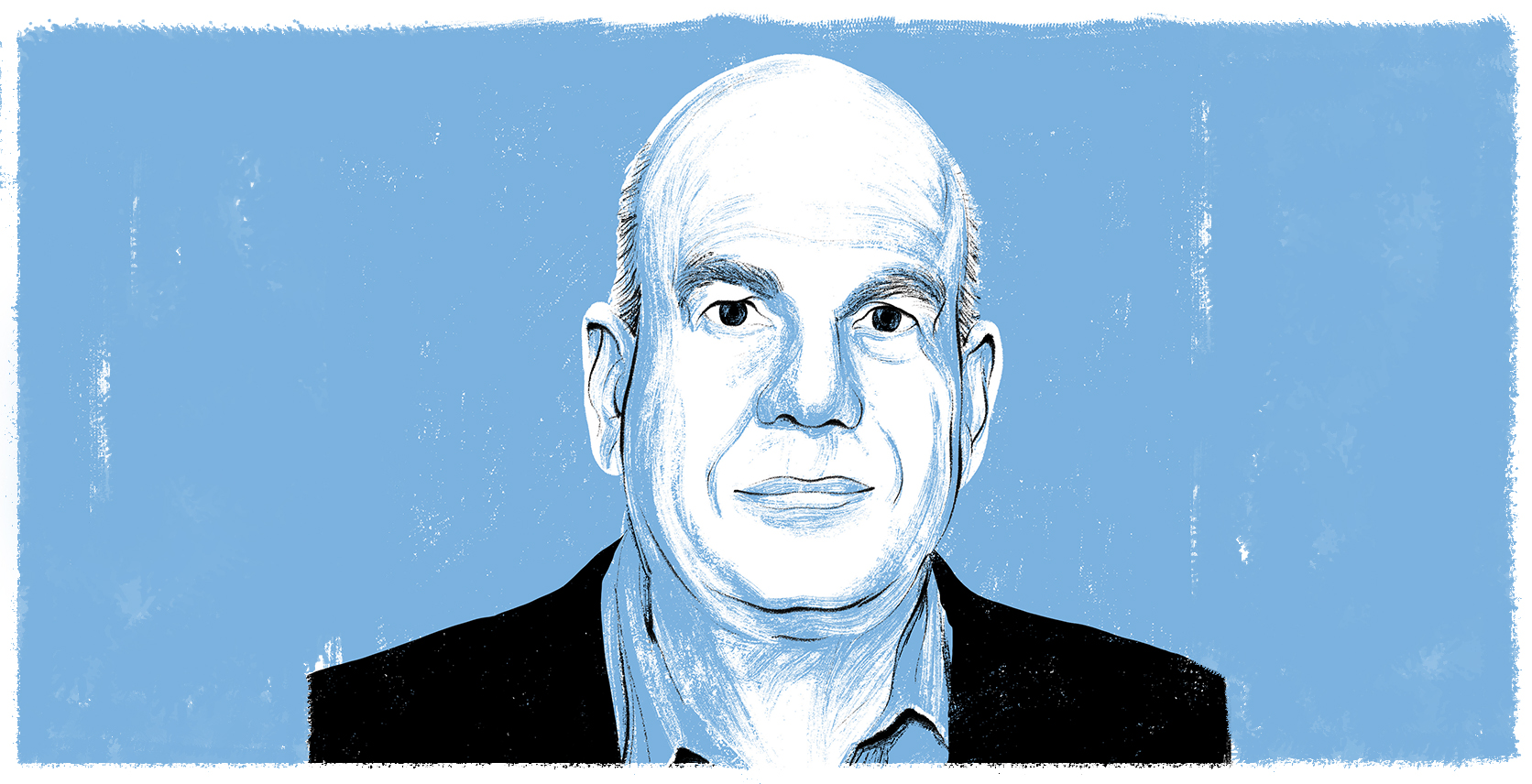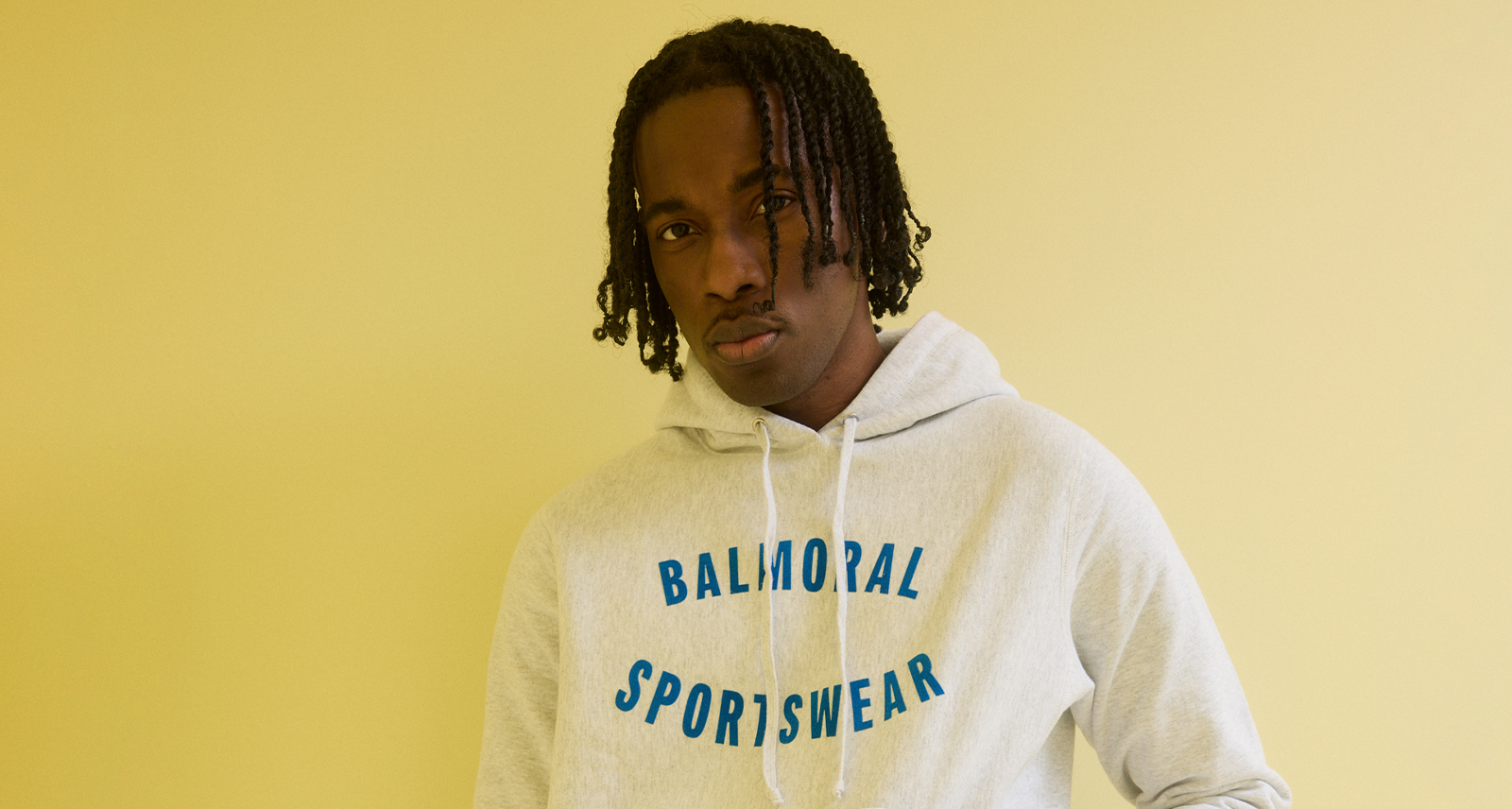David Simon Makes TV Important Again
The Plot Against America is Philip Roth’s horror novel of alternative fiction in which a demagogue president of the United States stokes fear and incites violence to win ignorant hearts and votes. The year is 1940, the president is Charles Lindbergh, and the America depicted is not so different from today’s dark reality. No wonder David Simon, the tough-talking former Baltimore crime reporter who forever changed the television landscape with his show The Wire — and then again with Treme, The Deuce, Show Me a Hero, and Generation Kill — has adapted the book into a four-part miniseries premiering this month on HBO. We caught up with the tenacious 60-year-old father of two to find out what keeps him up at night.
Your shows are unflinching and your Twitter feed is provocative. Does the creator of The Wire ever turn off? What does happiness mean to you?
I don’t know if anybody is really happy.
But certainly your success must bring you a modicum of joy. Seeing your message be so well-received…
My kids make me happy, family, a joke. I’m the same as anybody else. We all live our lives in molecular fashion. There’s a place where you go to recharge your battery, but life in the public square? That’s what I do for a living.
Roth wrote his book in 2004, yet it plays like something that could happen today. Are you afraid for America?
There’s forces in play that make it very clear that the institutions and structure no longer work. Having said that, I don’t think it absolves anyone from having to fight — we may lose, but there’s no other choice.
Is making television how you fight?
I used to be a journalist. I’m trying to have political arguments. I have my say with characters and dramatic narratives, but I didn’t go to film school and I didn’t want to make television. I ended up here as an accident. At the end of the day, if what I’ve done is make entertainment, I’ve wasted my time.
Didn’t you originally turn down this project?
I didn’t feel like the book was relevant to our political moment. We had just re-elected Barack Obama. But then, of course, after Trump was elected, away we went.
It’s like Roth telegraphed Trump: the political leader who knows nothing but can incite the masses through misinformation to unite them around anger and hate.
Churchill once said democracy is the worst form of government, until you consider all the others. Roth’s whole thing is a critique of how vulnerable democracy is to a demagogue. Democracy is a fragile form, susceptible to disinformation and campaigns structured to incite fear to stoke the worst part of voters. Nobody knows what the truth is anymore. The truth barely prevails. This is a story about what happens when democracy loses its way.
I’m trying to picture you at Philip Roth’s house to discuss adapting his book. Tell me he loved Omar.
I had an hour and a half to discuss this project. We didn’t discuss Omar, but we did discuss the current political moment, which he thought was infinitely worse than what he’d imagined.
But in the novel, president Lindbergh signs a peace treaty with Hitler!
But in Roth’s scenario, that required the greatest American hero to turn the country away from its principles. Lindbergh was nothing if not heroic, charming, and boyish. Trump is none of those things, yet he’s managed to achieve the same result without having to fly across the Atlantic.
How bad are things in the U.S. right now?
Grandiose fear. Everybody needs to shut the fuck up calm the fuck down. When it comes to race and religion, there’s an ugly strain in the American id.
You’re a Jewish baby boomer from New York. It must have been a thrill working with Philip Roth.
I would have loved to get his reaction, as hard as that might have been, but before I was done with my first draft, he passed away. In that first meeting, though, he signed a book of his non-fiction for me, which I still have.
What kind of people would you like your children to grow up to be?
Execute if you say you’re going to do something. Keep your word. One of the reasons I’ve been able to do this as long as I have is we stay on budget. If we go over, it’s because of an act of God. Have a plan. It’s simple shit. I’m not a paragon of anything. Just have a take and try not to suck.
Much ballyhooed is the Golden Age of Television that we’re currently enjoying. How much of that do you think should be credited to you?
It’s all a continuum. I was taught stuff by Tom Fontana [of Oz] — what a television show can do and the playwrights he employed. They were breaking ground on Oz when I was still at newspapers, and Mary Tyler Moore and those seminal dramas. That had to happen for us to have a shot at making what we did. I don’t think six hours on a drug corner [The Corner] gets made if I didn’t sit there slack-jawed watching that first episode of Oz.
Between writing Homicide in 1991 and getting ready to premiere The Plot Against America today, what have you learned?
How fast it all comes and goes. I’m already in the writers’ room working on the next thing. If Plot gets good reviews, that’d be nice. Maybe they’ll let me keep making television, which is nice, but they might reconsider. I like getting to stay here for as long as it lasts.
Not letting you make a show is like not letting Bruce Springsteen play a concert. There’s no guarantees. I get paid a lot of money to do television, and it might sound obnoxious, but money is not the metric. All I wanted to do was be a newspaper reporter. I’d still be doing that if my newspaper hadn’t started going the way of all newspapers. Then I found this job because I thought it was interesting — but never with the regard of having it be a career.
What advice can you give our readers?
Don’t look behind you. Whatever you did is done. Take a lesson, but don’t sit there looking at your old clips, as we say in newspapers.
How can a man be happy?
Don’t waste your life doing something you don’t want to do.

AMERICAN NIGHTMARES
Barry Hertz, Globe & Mail critic and David Simon superfan, recaps the showrunner’s big themes
5. The Wire, 2002–2008. “Peak Simon,” says Hertz. “Each season of The Wire touches on a different aspect of American life — the media, the police, our school system — but taken together, it’s really about the futile efforts to stem the drug war.”
4. Generation Kill, 2008. “A terrific series that didn’t get the attention it deserved,” says Hertz. “It’s about the Gulf War, but also the value of human lives.” Based on a book by Evan Wright, it starred Alexander Skarsgård for its single season.
3. Show Me a Hero, 2015. “No one is better than Simon at portraying the grinding machinery of American bureaucracy,” says Hertz, adding that Oscar Isaac played a typical Simonian character, with moral intentions set on fire in an immoral world.
2. The Deuce, 2017-2019. “This one is about the commodification of capitalism, the body, and (given the subject matter of prostitution and pornography) gender imbalances,” says Hertz. Maggie Gyllenhaal gives a career performance.
1. Homicide: Life on the Street, 1993–1999. “Seeing the absurd conditions of the people who protect America’s most vulnerable, Simon presents his first crime drama as a tragedy,” says Hertz. Plot Against America now picks up that torch.










